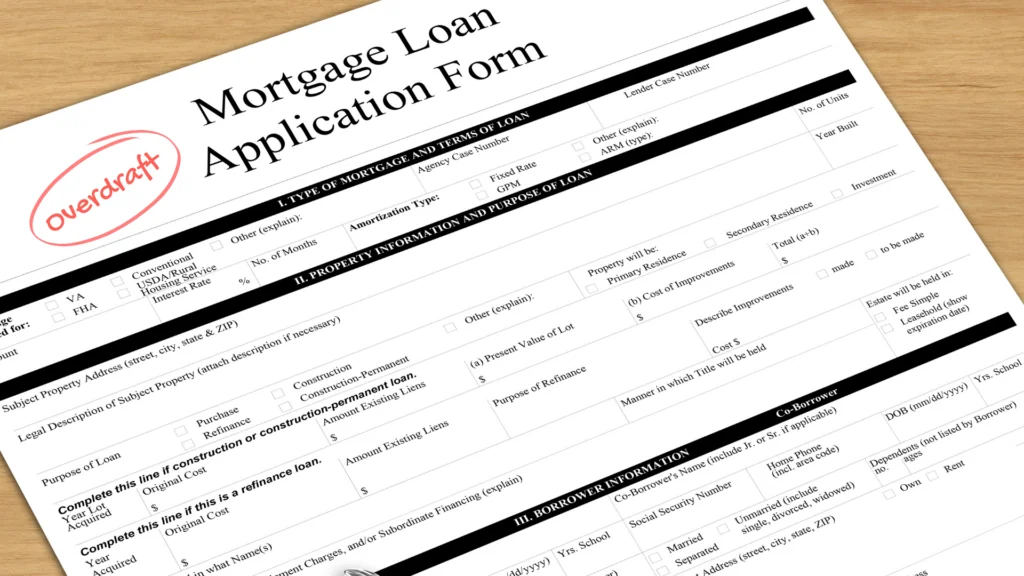- What Is a 6 Times Salary Mortgage?
- Can You Get a Mortgage Based on 6 Times Your Salary?
- How Do You Calculate How Much You Can Borrow?
- How To Get a Mortgage 6x My Salary?
- Can You Get a Mortgage 6 Times Salary with Bad Credit?
- Can Self-Employed Get a Mortgage 6 Times Salary?
- Is It Easier to Get a 6x Salary Mortgage in a Joint Mortgage?
- Can a Pensioner Get a Mortgage 6 Times Their Salary?
- Which Lenders Offer 6 Times Salary Mortgage?
- What Are the Downsides of Using Higher Income Multiples?
- Key Takeaways
- The Bottom Line
Mortgages 6 Times Salary: Everything You Need To Know

Want to buy a bigger home?
Most people can borrow about 4.5 times what they earn for a mortgage.
But what if you could borrow 6 times your salary? It’s not easy, but it could mean you can buy a nicer place.
Getting a mortgage 6 times your salary isn’t as common as smaller ones, and it’s usually for people who earn a good amount of money.
You’ll probably need a great credit score and a big deposit to impress the lenders.
In this article, we’ll tell you everything you need to know about getting a mortgage 6 times your salary.
Let’s get started!
What Is a 6 Times Salary Mortgage?
A 6 times salary mortgage lets you borrow up to six times your annual income.
While most lenders cap borrowing at around 4.5 times your salary, some are willing to offer more if you meet strict criteria.
This higher multiple can be helpful if you’re buying in an expensive area or need a larger loan to secure your ideal home.
However, not all lenders offer this option, and those who do usually have specific requirements you need to meet.
Can You Get a Mortgage Based on 6 Times Your Salary?
Yes, you can get a mortgage based on 6 times your salary, but it’s not easy.
Lenders see this as a higher risk, so they reserve it for applicants with strong financial profiles. Most people can usually borrow up to 4 or 4.5 times their income.
But, if you have a high income, work in a stable profession, or can show strong financial stability, some lenders might consider offering you more.
Lenders offering 6 times salary mortgages typically require:
- High Income – You’ll usually need an annual income of £50,000 to £100,000. For joint applicants, a combined income may need to be even higher.
- Professional Occupation – Certain jobs are favoured by lenders for higher multiples. These often include roles like doctors, lawyers, engineers, and other professionals with stable incomes and good career prospects.
- Excellent Credit History – A spotless credit report is almost a must. Lenders want to see a history of responsible financial management, with no missed payments, defaults, or other credit issues.
How Do You Calculate How Much You Can Borrow?
Calculating your borrowing potential with a 6 times salary mortgage is simple. Just multiply your annual income by six.
Here’s a quick reference:
| Annual Salary | 6 Times Salary Mortgage |
| £20,000 | £120,000 |
| £30,000 | £180,000 |
| £60,000 | £360,000 |
| £80,000 | £480,000 |
| £100,000 | £600,000 |
Remember, this is just a rough estimate. Lenders will also look at things like your monthly expenses, debts, and overall financial stability before deciding how much you can borrow.
The final mortgage amount may also depend on the lender’s criteria, including your loan-to-value (LTV) ratio—the percentage of the property’s value you want to borrow.
A lower LTV ratio (meaning a bigger deposit) can often help you secure a 6 times salary mortgage.
For an accurate estimate of your mortgage, use the affordability mortgage calculator.
How To Get a Mortgage 6x My Salary?
To get a mortgage 6 times your salary, you must first meet the lender’s criteria. Here’s what you need to know:
- Income Level. A high income is crucial. Lenders typically prefer applicants earning between £50,000 and £100,000 a year. Some might set the bar even higher, especially for joint applicants.
- Professional Status. Lenders favour stable, well-paid professions like medicine, law, and finance. If you work in one of these fields, you may have a better chance of getting a 6 x salary mortgage.
- Deposit Size. A larger deposit can boost your chances. While a 5-10% deposit is common, you may need to offer 15-40% to secure a mortgage at this higher multiple.
- Credit Score. Your credit score plays a big role in approval. You’ll need an excellent credit history, free from missed payments or defaults, as lenders will closely examine your financial behaviour.
- Debt-to-Income Ratio.Lenders will look at your debt-to-income (DTI) ratio. A low DTI shows you can manage additional mortgage payments. Ideally, your DTI should be below 36%, and definitely no higher than 43%. If it’s higher, consider reducing your debt before applying.
To see where you stand, use a Debt-to-Income calculator. It can help you understand if you’re in a good position to qualify for a 6x salary mortgage.
Can You Get a Mortgage 6 Times Salary with Bad Credit?
Getting a mortgage that’s six times what you earn isn’t easy, especially if your credit history isn’t great. Lenders are worried about people who’ve missed payments or had money troubles in the past, especially when they’re lending a big amount.
There are some lenders who might still say yes, but they’ll be picky. You’ll probably need to show that your money situation is better now and that you earn a steady income.
You might also need to save up a bigger deposit – maybe around 20% of the house price.
Be ready for extra checks to see if you can really afford the mortgage, and don’t be surprised if you pay more interest.
Can Self-Employed Get a Mortgage 6 Times Salary?
Yes, you can get a mortgage that’s six times what you earn even if you’re self-employed, but it’s not always easy. Lenders like to see steady income, and it can be harder to prove that if you’re self-employed.
To get a better chance, you’ll usually need to show at least two or three years of good business accounts.
You’ll also need to show your tax returns to the lender. Having a good credit score and a big deposit will help too.
It’s a good idea to talk to a mortgage expert who knows about self-employed people. They can help you find a lender who will say yes.
Is It Easier to Get a 6x Salary Mortgage in a Joint Mortgage?
Yes, it can be easier to get a bigger mortgage if you buy a home with someone else. Lenders look at both your incomes when they decide how much you can borrow.
So, you might be able to borrow more than if you were buying on your own.
But, there’s a downside.
The lender will check both of your money and debts. If one of you has bad credit or owes a lot, it could be harder to get the mortgage.
And, you’re both responsible for paying it back, so you need to be sure you can both afford it.
Can a Pensioner Get a Mortgage 6 Times Their Salary?
It’s really hard for a pensioner to get a mortgage that’s six times their income. Lenders worry about people being able to pay it back when they’re older.
Most lenders have a cut-off age for mortgages.
If you’re a pensioner and want a big mortgage, you’ll need to show you have enough money coming in from your pension to cover the payments.
You’ll also need a big deposit and a good credit score. Lenders might also ask you to pay the mortgage back quicker than usual.
Which Lenders Offer 6 Times Salary Mortgage?
It’s not easy to find a mortgage for six times what you earn.
Most places won’t do it. But some lenders might if you’re in a good job with a good chance of earning more.
Here are a few places that could help if you’re earning a lot:
- Kensington Mortgages – They like people who are just starting out in a good job and doing well.
- Hodge – This one’s good if you’re in a job like law, medicine, or finance and earn a lot.
- Teachers Building Society – They might lend you more if you and your partner earn £200,000 or more and have steady jobs.
Some other places like NatWest and Norton Home Loans look at how much you can really afford instead of just using a simple number.
So, you might be able to borrow more, but don’t count on getting exactly six times your salary.
What Are the Downsides of Using Higher Income Multiples?
Borrowing 6 times your salary might seem appealing, but there are some key downsides:
- Higher Monthly Payments – A bigger loan means higher payments each month, which can put pressure on your budget, especially if things change or unexpected costs come up.
- More Risk – The larger the loan, the more you’re affected by interest rate changes. Even a small increase could make your mortgage harder to afford.
- Fewer Options – Mortgages with higher income multiples often come with higher interest rates or less favourable terms. You might also miss out on schemes like Help to Buy, which help first-time buyers or those with smaller deposits.
- Stricter Checks – Lenders offering 6 times salary mortgages will do thorough checks to ensure you can afford the repayments. They’ll look at your spending now and in the future, which could limit how much you can borrow if your outgoings are high.
Key Takeaways
- Qualifying for a 6 times salary mortgage requires a high income, often between £50,000 and £100,000, and a large deposit.
- Lenders favour stable professions like medicine, law, and finance when offering higher income multiples.
- A good credit score and a debt-to-income ratio below 36% are essential for approval.
- Borrowing 6 times your salary means bigger mortgage payments. This could be tough on your finances, especially if interest rates go up.
- Only a few lenders offer 6 times salary mortgages, often with stricter terms and higher interest rates.
The Bottom Line
Getting a mortgage that’s six times your salary isn’t impossible, but it’s not easy either. You’ll need to be really careful with your money, have a good financial history, and often need some expert help.
Before you go for it, think about the risks and if you can really afford it in the long run.
If you’re not sure, it’s a good idea to talk to a qualified mortgage broker who can guide you through your application.
Want to make things easier? Get in touch with us. We can find you a mortgage expert who can help you find the right deal.
Get Matched With Your Dream Mortgage Advisor...

Frequently asked questions
Can I get a mortgage for more than 6 times my salary?
It’s extremely rare to find a lender willing to offer more than 6 times your salary. In most cases, this is only possible through high net worth mortgages, which are available to those with a net income of £300,000 or assets worth £3 million or more.
What happens if I don’t qualify for a 6 times salary mortgage?
If you don’t qualify, you may need to consider borrowing less or increasing your deposit.
Alternatively, working with a mortgage broker can help you find a lender who is willing to offer a more favourable deal based on your specific circumstances.
Do buy-to-let mortgage lenders use income multiples?
No. Buy-to-let lenders don’t usually base your mortgage on how much you earn. Instead, they look at how much rent you can make from the property.
They want to see if the rent will cover the mortgage payments, and often they need the rent to be 25% to 45% more than the mortgage.
Your income might still matter if the rent isn’t high enough, but it’s not the main thing like it is for normal mortgages.




